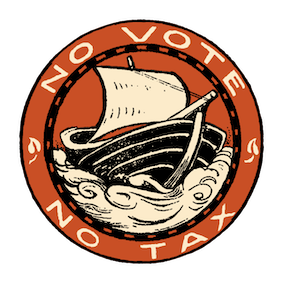Women’s Suffrage in the United States: Laws, Practices and Representations (19th-21st centuries)
Université du Mans (3L.AM) / Université Toulouse Jean-Jaurès (CAS)
February 3-4, 2022
American women were long excluded from the electoral process because societal constructions kept them confined within the domestic real. Actual enfranchisement was obtained after long struggles to achieve not only equal access to voting, but above all representation. While the adoption of the 19th Amendment in 1920 prohibited all gender-based restrictions on access to suffrage, it did not mark the end of the long struggle for women’s right to vote. It was not until the passage of the Voting Rights Act in 1965 that African American women were able to register to vote in the Southern states, where exclusion from the electoral process had been in place since the end of the Reconstruction era. Although the political heritage and principles of equality of the Six Nations inspired first-wave activists, Native women were marginalized not only by their fellow citizens but also by local and federal institutions. Even today, some women still do not have access to suffrage because of their social and/or ethno-racial affiliation. Activists continue to denounce and fight gerrymandering as well as voting restrictions (Sunday voting, early voting, mail-in voting).
This conference will focus on the campaigns and struggles led by women demanding access to universal suffrage, as well as the obstacles they had to overcome to exercise their right to suffrage. This right is inseparable from a feminist struggle, the limits of which will be considered in the context of intersectional struggles. The key figures of women’s suffrage (Susan B. Anthony, Elizabeth Cady Stanton, Frances Harper and Ida B. Wells) are now well-known thanks to writings and speeches that have become part of the feminist political canon, but the way they were treated at the time (supported or demonized through posters or press cartoons, for example, but also in national newspapers and so-called ‘women’s’ magazines) will be discussed and compared with contemporary situations.
Women’s access to the political arena was one of the consequences of women’s suffrage, and we will consider not only how they wielded suffrage in the 20th and 21st centuries, but also what programs and causes were taken up by elected women, from Jeannette Rankin’s pacifism to Deb Haaland’s environmentalist commitment. Women’s political activism is not necessarily a feminist choice, as demonstrated by Phyllis Schlafly’s career. Some of them adopt conservative politics (Sarah Palin) while others express socialist democratic convictions (Alexandria Ocasio-Cortez). The link between feminism and politics is to be questioned in light of recent or past historical events in order to better understand the place of women in political parties but also in national congressional bodies.
Finally, participants are invited to question the impact of the media, art forms and literature on the image of women politicians (Shirley Chisholm, Hillary Clinton, Kamala Harris, Sarah Palin...). Have such representations supported or conversely, stigmatized women’s political involvement? Is the progress of women in politics just a token reform or representative of the forward path taken by members of minority groups since the right to vote was obtained? Does the staging of the history of women in politics participate in a democratic effort or does it reinforce a patriarchal perspective that invisibilizes women? In the current context where bills have been proposed to limit minority voter turnout – largely in favor of the Democratic party – has become an issue, contributors may wish to consider how these laws impact women in particular. The treatment of both women voters and elected officials, from the perspective of fiction and nonfiction, may be studied.
In a context of commemoration of the movement (or even movements) for women’s suffrage, their major stages and outstanding personalities, presentations on the evolution of the historiography and museography dealing with women’s right to vote will also be welcome. They will allow us to understand the place devoted to previously marginalized women activists as well as the format of these rewritings of history or exhibitions and to truly appreciate the contributions of Chinese-American, Latinx and Native American women.
Paper proposals of 400 words, accompanied by a short biography of the author, should be sent to eliane.elmaleh@univ-lemans.fr, elisabeth.lamothe@univ-lemans.fr by September 30, 2021.


